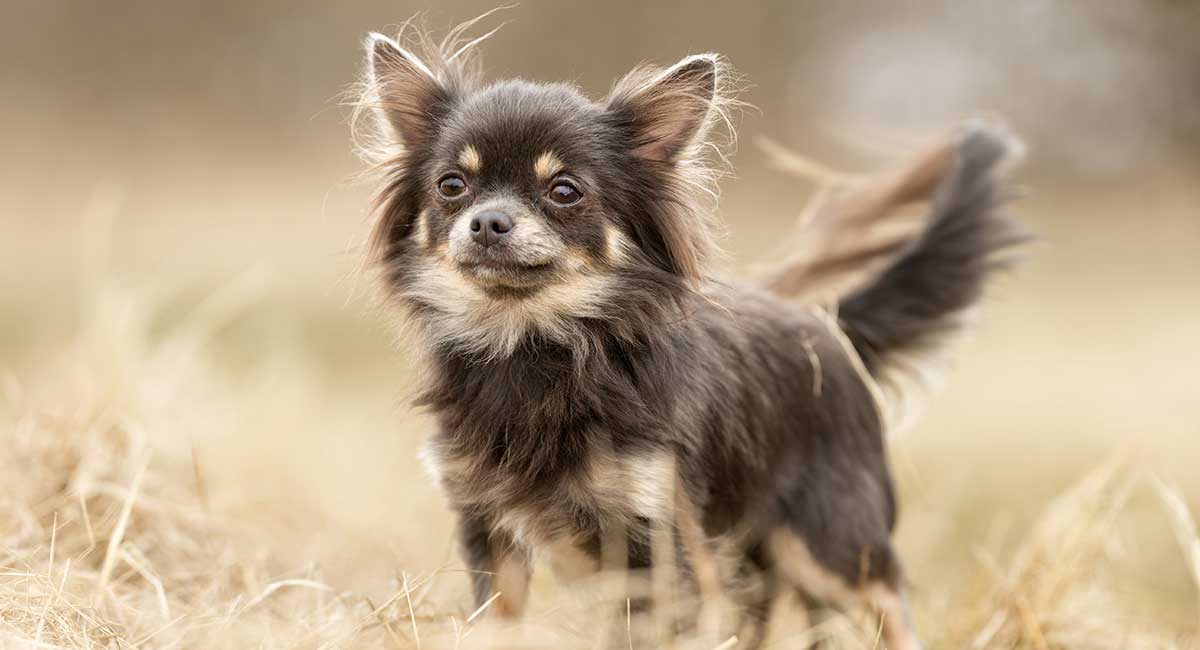
Small dog breeds make great pets.
They are easy to carry, take up less space, fit into any vehicle and don’t need a lot of food!
But not all small dogs are equal when it comes to temperament, care or health issues.
So whilst size is a great starting point for your puppy journey, there is a lot more to consider.
We'll start by taking a look at small dog breeds with pictures, then help you find some comparisons for the top options.
After that we'll look specifically at miniaturized versions of your favorite bigger breeds.
To see if they also provide a good option for potential owners looking for little pups.
Small Dog Breeds
One of the great things about small dogs is how many of them there are to choose from.
Whether you are looking for a curly or smooth coat, bold or retiring personality.
There is the perfect pupster for every owner out there.
Small Dogs A - Z
Know which breed you want to learn more about?
Then scroll straight down to their place in the alphabet.
You won't just find purebred pups in this list.
We’ve also included some popular small dog mixes too, to help you find the right fit for your family!
Get to know your favorite small dog breeds, by clicking on the photos below.
DACHSHUND
DORKIE
DOXIEPOO
HAVANESE
ITALIAN GREYHOUND
JACK RUSSELL TERRIER
JACKAPOO
JAPANESE CHIN
KING CHARLES SPANIEL
Comparing Small Dog Breeds
Not sure which of these small dogs is the perfect fit for your lifestyle?
We've looked at some popular points of confusion, to help you make the right choice.
FRENCH BULLDOG vs ENGLISH BULLDOG
HAVANESE vs MALTESE
LHASA APSO vs SHIH TZU
Miniature Dogs
Some breeds of dog have Miniature in their name.
Like Miniature Poodles and Miniature Schnauzers.
Others are referred to as miniature, or teacup, because they have been selectively bred to be miniaturized versions of a larger breed.
This is a controversial process, because it often involves using unhealthy runts or dogs of other breeds to get the pup you want.
Miniature and Teacup Dog Breeds
The list below will help you to look at teacup and miniature dogs of different breeds.
Find out whether they are a happy, healthy smaller version of a larger dog.
Or something best avoided!
Mini Collie
Mini Corgi
Mini Dachshund
Mini Maltipoo
Mini Pug
The Best Small Dog Breeds
Our favorite small dog breeds include the BORDER TERRIER, Toy Poodle and Miniature Schnauzer.
All of these little dogs have fun personalities, and are pretty healthy too.
The main thing to avoid with small dog breeds are those that have extreme features.
Short legs and flat faces are signs that they aren’t bred to reflect the natural proportions a healthy dog should have to stay fit.
Looking like a smaller version of an average sized dog is a good early sign that the dog is likely to be fairly healthy.
Although beware of anything labelled teacup, as this is a sign that the shrinking process has been taken too far!
Not certain a small dog breed is right for you? Check out breeds and mixes of every size in our ultimate Breed Guide here.

Lauren says
Hi there,
The puppy that is featured in the article once you click on “toy poodle” is my dream dog. However, typical toy poodles I see don’t quite have the long ears like the dog in the article. Any tips on how to track down a toy poodle with the floppy ears, reddish brown color?
Thanks!